




 |
   |
 |
|
Jellyfish Jane Jensen Jeronimo Jessika |
Jet Jet Set Satellite Jethro Tull |
Jets to Brazil Jewel Jigsaw |
Jigsaw Seen Jo Jo Gunne Jobriath |
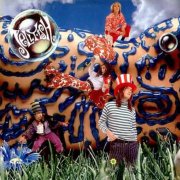 |
Bellybutton (1990, 39.45) ****½/½ |
|
| The Man I Used to Be That is Why The King is Half-Undressed I Wanna Stay Home She Still Loves Him All I Want is Everything Now She Knows She's Wrong Bedspring Kiss |
Baby's Coming Back Calling Sarah |
|
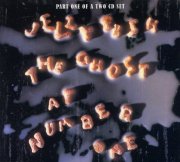 |
CDS (1993, 14.40) ***½/½ The Ghost at Number One All is Forgiven Worthless Heart Ignorance is Bliss |
Current availability:
Mellotrons used:
I'd like to think you all know the Jellyfish story, but just in case... They were a short-lived, LA-based powerpop outfit, heavily influenced by The Beach Boys and Queen, amongst many others, sublime chord changes and heavenly harmonies to spare. Unbelievably, they only lasted two albums before disbanding due to lack of punter interest. It's a sick world, folks. Bellybutton is absolutely marvellous, chock full of classics such as That Is Why, The King Is Half-Undressed, Now She Knows She's Wrong and Baby's Coming Back, as memorably covered by McFly (it says here). How did they fail? A splendid YouTube track-by-track interview with Roger Manning tells us that the band hired in a real M400, with occasionally audible strings (and flutes and/or cellos?) on opener The Man I Used To Be, quite distinct from the track's real ones and chordal flutes on Now She Knows She's Wrong.
Now, I used to have their second and last album, Spilt Milk (****½), on here, too, but Manning's YouTube run-through tells me it's Mellotron-free, as, indeed, did my ears, after another play. Or is it? The CD booklet unfolds to reveal a composite picture of the studio, gazing around from the centre point, band members cropping up in various places. They used a panoply of vintage gear, pride of place going to a gorgeous B3 and a perspex grand piano (!) and, if you look closely, a pristine M400 in the background. It could easily be buried in the mix somewhere, but Manning doesn't mention it this time round. 'Used during the sessions' doesn't always equate to 'used on this release', however, as a nice little flute part turns up on Worthless Heart, found on the first CD single (remember multiple CD single sets?) for The Ghost At Number One.
See: Roger Manning | Umajets
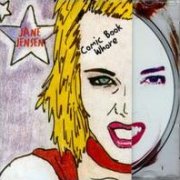 |
Comic Book Whore (1996, 48.15) **½/½ |
|
| More Than I Can Luv Song King Cowboy Highway 90 Listen Blank Sugar Dream Ridiculous Implausable |
Clumsy Superstar Be Just Sound |
|
Current availability:
Mellotron used:
Jane Jensen is something of a polymath, her talents encompassing visual art, dance, music and theatre, although going by her second album, 1996's Comic Book Whore, I'm not sure she shouldn't have stuck to some of the other disciplines. It has its moments, certainly, but much of it crosses electronica with 'modern rock', creating a rather unappetising stew in the process, typified by Luv Song or Highway 90.
Steve Barber plays Mellotron on closer Be Just Sound, with what sounds like a brief string section part near the end of the track. All in all, then, nothing to get too excited about, for music or Mellotron.
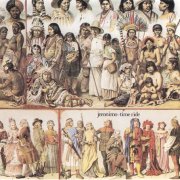 |
Time Ride (1972, 41.03) **½/½Time RideThere Are People Blind Man To Be Alone Sunshine Indian River Do You Still Remember Ice Dream Gone |
Current availability:
Mellotron used:
Jeronimo had considerable success at the end of the '60s with two major hits, Heya Heya and Na Na Hey Hey (gets round the language barrier, I suppose), while their first album was a split compilation with Creedence Clearwater Revival (!). Time Ride was their fourth and last full album, best described as a budget Uriah Heep, a major influence on many European bands. Areas covered go from the rather dated hard rock of Time Ride itself through the balladry of To Be Alone and all points in between; although it's quite listenable for a few tracks, towards the end, I found myself losing the will to live.
Guitarist Michael Koch doubled on keyboards, adding some low-in-the-mix Mellotron brass to There Are People and To Be Alone, but it's hardly what you'd call essential listening, to be honest. So; a dated, dreary, really rather average album with a little inessential Mellotron. Not what you'd call a winning combination, is it? One for fans of the era, I think.
 |
Ela Tora Pou Den Thes (1977, 36.24) **½/T½ |
|
| Ela Tora Pou Den Thes Xechna ta Palia To Rantevou Agori Mou Mia Agapi Kenourgia As Itan Ki Oniro Bella Jessy Pernis ke mia Poza |
Alithia Sas Leo Ela Piasse Me Pali Apo To Heri Ena Kalokeri Moni Ta Hili Mou Dipsane |
|
Current availability:
Mellotron used:
I can tell you next to nothing about Jessika, not even her surname, due to the paucity of Internet information on Greek musicians, although an enthusiastic chap has written a veritable essay on the lady on the Discogs entry for 1977's Ela Tora Pou Den Thes (in Greek, admittedly). He tells us that the album sold badly at the time, quite possibly due to its terrible, sexist-even-for-the-time 'tourist shop' sleeve art, but has come to be appreciated by connoisseurs of strange, almost-proggy Europop (I extrapolate, admittedly). Almost proggy? Pushing it a bit, but it's smothered in crazed Hammond, synth and flute work, slapped on top of the folk-derived pop songs like the proverbial ill-fitting wig. Any highlights? Maybe Xechna Ta Palia, Agori Mou and Alithia Sas Leo, but don't go expecting actual, y'know, prog or anything.
An unknown musician adds Mellotron to three tracks, with crazy, 'how did they do that?' high-speed, heavily-reverbed string parts on the opening title track and Ena Kalokeri Moni and 'orchestral replacement' strings on To Rantevou. Feel the need? It's on YouTube.
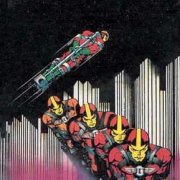 |
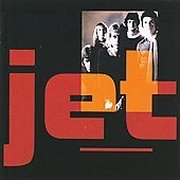 |
Jet (1975, 38.49) ***½/TT |
|
| Start Here Brian Damage It Would Be Good Song for Hymn Nothing to Do With Us Tittle-Tattle Fax'n'Info My River |
Diamonds Are a Girl's Best Friend Whangdepootenawah Cover Girl |
||
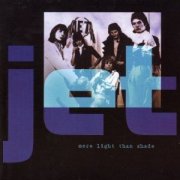 |
More Light Than Shade (2000, recorded 1974-76, 72.48) ***/T½ |
||
| Desdemona Lady Ricochet Horrible Breath My River Start Here Around the World in Eighty Minutes We Love Noise Tax Loss |
Our Boys Hand on My Heart Johnny Mekon Diamonds Are a Girl's Best Friend (live) Song For Hymn (live) Tittle-Tattle (live) Nothing To Do With Us (live) Cover Girl (live) |
Uncle Evil Don't Cry, Joe Antler Gurus or Gaga? |
|
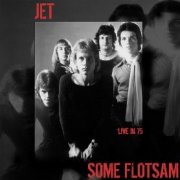 |
Some Flotsam (2010, recorded 1975, 58.41) ***½/TT½ |
|
| Jet Intro Tittle-Tattle Cover Girl Song for Hymn Diamonds Are a Girl's Best Friend My River Horrible Breath Brian Damage |
Nothing to Do With Us Song for Hymn Diamonds Are a Girl's Best Friend My River Horrible Breath Brian Damage Nothing to Do With Us |
|
Current availability:
Mellotrons used:
Jet coalesced in 1974, comprising ex-members of Marc Bolan's early outfit, John's Children (singer Andy Ellison and drummer Chris Townson), Sparks (bassist/songwriter Martin Gordon) and The Nice/pre-recording Roxy Music (deranged guitarist Davy O'List), plus keyboard player Peter Oxendale. Their sole album, the record company-named Jet (nice one, guys. Imaginative), is a fine slice of post-glam, pre-punk mayhem, containing rather strange odes to the modern world along the lines of Start Here, Nothing To Do With Us and Fax'n'Info, that were clearly never going to fit into any comfortable niche either at the time or subsequently. There are hints of Sparks and Roxy in its grooves, but Jet were a band unto themselves and themselves only. Oxendale plays some of the most badly-recorded Mellotron I've ever heard, with choirs and strings on Brian Damage [sic.] and Nothing To Do With Us, strings all over Song For Hymn and choirs on Tittle-Tattle and the unpronounceable Whangdepootenawah, though how much they actually improve the album is difficult to define. Try to see it as an amusing diversion.
That was effectively it for Jet, three of its members going on to form the inimitable Radio Stars, just in time to get caught up in the whole punk business, although their gleeful refusal to toe the pre-PC party line espoused by the sexless likes of The Clash (the most overrated band ever? Discuss) made them targets for derision and worse from the frankly fascistic music press of the day (yes, NME, I'm talking to you). That was that, then, until 2000 or so, when the original album finally made it to CD, alongside an archive release, More Light Than Shade, containing various demos and live tracks. It's a pretty decent effort as such things go, although it (understandably) lacks even their studio album's vague cohesion. Their 1974 demo tracks aren't bad, if not up to the album recordings, while their second album demos are probably the best thing here, clearly leading up to The Radio Stars' brief burst of fame. The live material sounds like it's from a BBC recording, an announcer, er, announcing and generally letting the listener know what's going on. Oxendale is introduced as playing, "Five different keyboards, including a synthesizer and a Mellotron", before you hear one of the band referring to it, too; he plays strings on Song For Hymn, Tittle-Tattle and Nothing To Do With Us, replicating his studio parts in arrangement, if not timbre, although the strings on the last three tracks are string synth.
A third Jet album hit the virtual shelves in 2010, the live download-only Some Flotsam, consisting of their full set from Bristol Colston Hall in 1975, supporting Ian Hunter and Mick Ronson, selections from their Hammersmith date added as bonuses. These soundboard recordings are a proper warts'n'all record of the band's live show, which was surprisingly good, all things considered. Highlights of their nine-song set include future Radio Stars 'classics' Cover Girl and the proto-punk Horrible Breath, My River, Nothing To Do With Us and the nearest they got to a ballad, Song For Hymn. Oxendale adds Mellotron to several tracks, with background strings on Tittle-Tattle, Cover Girl and Brian Damage and more upfront ones on Song For Hymn and Nothing To Do With Us, all parts repeated on the relevant bonus versions.
Generally speaking, Jet were an aberration in the ghastly mess of commercial interests and lowest-common-denominators known as The Music Biz and all the better for it, if you ask me. None of these albums are in any way consistent, which is probably to their advantage, although it doesn't mean you'll necessarily like them. The Mellotron on all is a bit on the shoddy side, but can you imagine it any other way? The band still perform the odd informal reformation gig, as do The Radio Stars (let's face it, there isn't much between them), which are probably as shambolic as you'd expect. Martin Gordon has released five albums in his 'Mammal Trilogy'; he promises the fifth is the last. The one I've heard is full of rather excellent songs, making me keen to hear the rest.
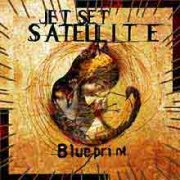 |
Blueprint (2000, 43.19) ***/½ |
|
| Lies By the Thousands Best Way to Die The Night it Went Too Far Blueprint The Goodbye Letter Baby, Cool Your Jets After the Rain Tinfoil Star |
Afterglow Suddenly |
|
Current availability:
Chamberlin/Mellotron used:
I have to say I agree with the 'Net reviewer who, upon hearing Jet Set Satellite's Blueprint, commented that 'they're trying so hard to be 'alternative rock' that they end up sounding almost like pastiche', or somesuch. A duo at time of recording, Canadians Trevor Tuminski and Dave Swiecicki have made a reasonable enough album, although I found it all a bit unengaging, frankly. Nothing actually stands out in any particular way, although there's enough variety across the album to stop the casual listener from being too bored.
The only tape replay track is Blueprint itself, with Swiecicki on Chamberlin and John Webster on Mellotron, along with a real string arrangement. Unsurprisingly, it's almost impossible to isolate the taped instruments from the real ones and I can't hear any likely non-string sound, so don't go out of your way for this one. Average.
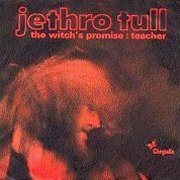 |
7" (1970) ***½/T½ Witches Promise Teacher |
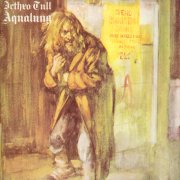 |
Aqualung (1971, 43.34) ****½/T½ |
|
| Aqualung Cross-Eyed Mary Cheap Day Return Mother Goose Wond'ring Aloud Up to Me My God Hymn 43 |
Slipstream Locomotive Breath Wind-Up |
|
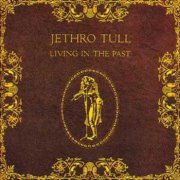 |
Living in the Past (1972, 82.10) ****½/T |
||
| Song for Jeffrey Love Story Christmas Song Living in the Past Driving Song Bourée Sweet Dream Singing All Day |
Witches Promise Teacher Inside Just Trying to Be By Kind Permission of Dharma for One Wond'ring Again Locomotive Breath |
Life is a Long Song Up the 'Pool Dr. Bogenbroom For Later Nursie |
|
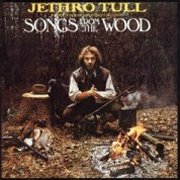 |
Songs From the Wood (1977, 41.22) ****½/TSongs From the WoodJack-in-the-Green Cup of Wonder Hunting Girl Ring Out, Solstice Bells Velvet Green The Whistler Pibroch (Cap in Hand) Fire at Midnight |
Current availability:
Mellotrons used:
Tull are a bit of an odd one on the Mellotron front; they toyed with using one a handful of times, then gave it up as a bad job. First heard on their early 1970 single, Witches Promise, a 'properly' arranged string part is played by new recruit John Evan(s) to great effect. For some unknown reason, this track seems to be spelled in several different ways, including Witch's Promise and both spellings with or without the 'The'. A later single, Life's A Long Song is also known as Life Is A Long Song, so maybe the band just had trouble with their spelling. Who knows.
Come '71 and Tull produced what many still regard as their classic, Aqualung, containing mainman Ian Anderson's views on life, the universe and, well, everything really. The title track and Locomotive Breath are still played at every Tull gig to this day, but it's second track in, Cross-Eyed Mary that concerns us here. A creepy ascending strings part is played under Anderson's flute intro, leading up to the first verse, where it stops dead. And that's it. No more Mellotron, apart from a very brief burst several years later. Jethro Tull went on to greater fame and fortune with their first concept album proper, Thick as a Brick (*****), about which Anderson recently expressed amazement that no-one realised they were taking the piss out of their contemporaries. Between Aqualung and Thick as a Brick, Tull released Living in the Past, a wittily-titled double album of odds'n'sods from the first few years of their career and a few unreleased tracks, containing Witches Promise, amongst others. The original issue came bound like a hardback book, a booklet inside including both LPs; sadly, the age of the CD has made such packaging redundant. A shame. It also seems to've made complete tracklistings redundant, although Witches Promise is on the single CD, as well as the remaster of 1970's Benefit.
1977's Songs From the Wood, surprisingly, features a little Mellotron, too. After the rather formless Too Old to Rock'n'Roll, Too Young to Die (**½), the album was a distinct change in direction, being both folk-influenced and very progressive, providing a home for several songs still played regularly by the band to this day. The title track is a wonderfully complex piece, with more stops and starts than, er, something that stops and starts a lot, while the superb Hunting Girl also features probably the filthiest lyric in the Tull canon, against, er, stiff competition. 'Spur necks the size of my thumb' indeed! Pibroch is one of the band's lesser-known prog epics and Ring Out, Solstice Bells (a UK hit single) has to be the best non-Christmas Christmas song ever recorded. By this point, Tull had expanded to include orchestral composer/arranger David Palmer on additional keyboards, but it's impossible to tell who played the Mellotron, as John Evans (who seems to have regained his 's') is credited with 'piano, organ and synthesizers', while Palmer has 'piano, synthesizer and portative organ', a wonderful mini-pipe organ they actually used to tour. No Mellotron, though. I reckon it's Evans, but who knows? Anyway, it can be heard on Cup Of Wonder, with some clearly audible strings, not to mention a high (and speedily-played) flute line, quite distinct from Anderson's real one.
See: Ian Anderson
 |
Perfecting Loneliness (2002, 67.42) **/T |
|
| The Frequency You're the One I Want Cat Heaven Perfecting Loneliness Lucky Charm Wish List Psalm Autumn Walker |
Further North William Tell Override Disgrace Rocket Boy |
|
Current availability:
Mellotron used:
Jets to Brazil were a New York-based sort of post-post-hardcore outfit, active from around 1997 to 2003. 'Post-post-hardcore'? A bit like a wussy Hüsker Dü without any of the good bits. Easy, eh? Going by their third and last album, 2002's Perfecting Loneliness, about the only thing they really seem to have perfected is the ability to play rock without any real passion, although they don't sink as far as the likes of Matchbox Twenty or Train, or about five hundred other bands I could name if you tortured me for long enough. Speaking of things being long enough, not only is this album at least twenty minutes too long, with too many tracks, but almost all said tracks drag on far longer than necessary; practically nothing here's under four minutes and closer Rocket Boy is stretched out to an unbelievable nine plus.
J. Robbins and Blake Schwarzenbach play Mellotron, with (mixed?) strings on the Hüsker Dü-ish You're The One I Want and Lucky Charm, which isn't Hüsker Dü-ish at all, just stultifyingly dull and (guess what) overlong, while a real cello turns up here and there (notably on Rocket Boy), just to confuse the issue. If this album were a four-track EP with edits of its best material, it might just about be palatable. As it is, it's dull as ditchwater and best avoided, although its Mellotron work is at least passable.
 |
 |
0304 (2003, 53.16) **½/T½ |
|
| Stand Run 2 U Intuition Leave the Lights on 2 Find U Fragile Heart Doin' Fine 2 Become 1 |
Haunted Sweet Temptation Yes U Can U & Me = Love America Becoming |
||
Current availability:
Chamberlin used:
Jewel Kilcher grew up in Alaska, moving down to California in her teens, slowly building a reputation as a young, serious singer-songwriter before being 'spotted'. After several successful albums of introspective material, for some bizarre reason (money? Fame?), she chose to hit the mainstream with 2003's 0304, promoting the album with a series of provocative videos, obviously attempting to appeal to the teeny crowd, although already in her late twenties. Huh? Except that her past keeps lurching through the sound, with her signature acoustic guitar on Run 2 U (note irritating Prince-style/txtspk titles), the banjo (!) on Fragile Heart and the accordion, for Chrissake, on Intuition. I can't work out at whom, exactly, this album is aimed; her old (very sizeable) fanbase aren't going to like it and why would the younger crowd suddenly latch on to someone half a generation away from them?
Anyway, almost the first sound on the album is Patrick Warren's (uncredited) Chamberlin flutes, although the later, credited use is mostly fairly minimal, with background strings on Leave The Lights On and Becoming and flutes on Fragile Heart, although the strings on Haunted are fairly upfront, with a nice 'slow-down' effect at the end.
See: Samples etc.
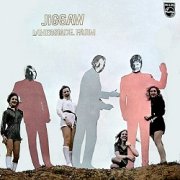 |
Letherslade Farm (1970, 50.35) **/T |
|||
| Tap Dance (1) Weaver's Answer Interview (1) Je T'aime/If You Were the Only Girl in the World Interview (2) Can I Have This Dance? Interview (3) School Sketch |
Blow Blow Thou' Winter Wind Interview (4) Vicar's Sermon Jesu Joy of Man's Desiring Tap Dance (2) Tap Dance (3) Agent Sketch Danny Interview (5) |
Northern Sketch (1) A Nitingale Sang in Berkeley Square Northern Sketch (2) Say Hello to Mrs Jones Northern Sketch (3) Interview (6) Diesel Blues Interview (7) Group Sketch |
Morning Interview (8) Seven Fishes Record Company Sketch Interview (9) Tap Dance (4) |
|
Current availability:
Mellotron used:
Going by their debut, Letherslade Farm, I'd guess Jigsaw were already veterans of the cabaret scene by 1970, although I could be wrong. The album contains a ridiculous thirty-two tracks, most of them rather unfunny sketches or joke versions of known material, although their take on Family's Weaver's Answer is atypical, being pretty much a straight cover. The album appears to be some kind of joke concept effort, its 'humour' not only forced, but incorporating all the usual -isms and -phobias you'd expect of the time, not least the recurring Tap Dance numbers, consisting of someone saying, "Anyone who can't tap dance must be queer" and the Agent Sketch's string of Jewish clichés. The handful of 'regular' songs tend to be fairly uninteresting (over eight minutes of Diesel Blues is unforgivable), although Morning isn't bad for what it is, ditto Seven Fishes.
Clive Scott's Mellotron (studio MkII, I'd guess) finally puts in an appearance on Say Hello To Mrs Jones, with a string part that barely sounds like a Mellotron, while I'm pretty sure that's Mellotron vibes on Seven Fishes, one of the record's handful of straighter tracks. Of course, the band finally found success in the mid-'70s, dressing in outrageous pink and silver costumes and making multiple Top of the Pops appearances with Sky High, before disappearing back into obscurity. That's the pop business for you, boys... Letherslade Farm was a fairly inauspicious start to their career, best described as a 'period piece', I think. Very little Mellotron, too, so I really couldn't recommend a purchase in the unlikely event that this ever sees a CD release.
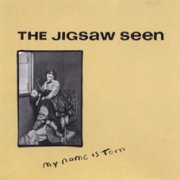 |
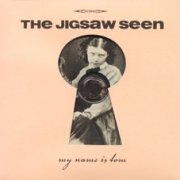 |
My Name is Tom (1991/2006, 18.59/34.29) ****/0 (T) |
|
| Warehouse the Wicked Black Aggie Persephone Again The Daily Planet My Name is Tom [CD reissue adds: Murder at the Luau I'm So Happy Today |
Off Track Eight Lancashire Lads The Best is Yet to Come] |
||
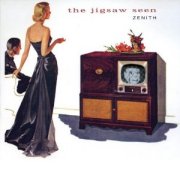 |
Zenith (2000, 44.15) ***½/0 |
|
| Letter to the Editor I'm With You Celebrity Interview When You're Pretty Tight Lips Fiddlesticks Girl on a Red Velvet Swing |
Whore Kiss Persephone Again If My Eyes Offend You Big Hand |
|
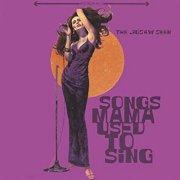 |
Songs Mama Used to Sing (2002, recorded 1995?-2002, 33.36) ***½/T |
|
| Little Know Ye Who's Coming Tattoo Baby Elephant Walk Still I'm Sad Melody Fair On a Carousel Desiree Luci Baines |
30 Century Man This is Where I Belong |
|
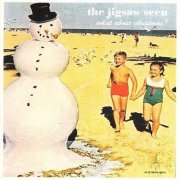 |
What About Christmas? (2006, 15.41) ***/TWhat About Christmas? (electric version)First of May (live) Jesus (live) Sleigh Ride (live) What About Christmas? (acoustic version) |
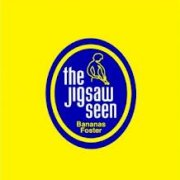 |
Bananas Foster (2010, 37.50) ***½/TT |
|
| Bertha Brilliance David Hart's Name of Song Melancholy Morning Tonight's Episode Choreography Killed the Cat Where the Action Isn't Cave Canem You Look Like a Lot of People |
Crazy Legs Fruitbasket Upset Jubilee |
|
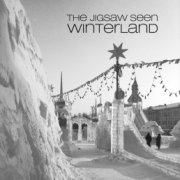 |
Winterland (2011, 33.18) ***/TT |
|
| What About Christmas? December Snow Angels of Pigtown Woman Loves the Season Candy Cane Circle of Steel Christmas Behind Me First Day of the New Year |
Dreams of Spring Winterland's Gone |
|
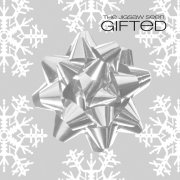 |
Gifted (2012, 32.52) ****/TTT |
|
| Open Up the Box Pandora Myth of the Season Christmas Ain't for Christians (Anymore) Couples Skate Sell Me a Coat Hag of the Barren Trees The More You Change Rise of the Snowflake Children |
Gifted Pretend it's Christmas |
|
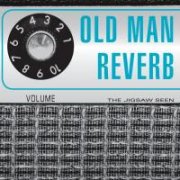 |
Old Man Reverb (2014, 33.28) ***½/TTT |
|
| Let There Be Reverb Idiots With Guitars Die Laughing Understand We Women Madame Whirligig Hercules and Sylvia Your Mind is Like Mine |
Abide Grief Rehearsal |
|
Current availability:
Mellotrons/Chamberlins used:
L.A.-based powerpopsters The Jigsaw Seen have been around for over thirty years now, although 2000's masterful Zenith was only their second full album. One a decade, chaps? Leaping back for a moment, 1991's My Name is Tom EP is stuffed with excellence (its closing title track is a minor modern psych classic), to the point where a cover of Love's The Daily Planet doesn't particularly stand out. Given that the original release was a) under twenty minutes long and b) long out of print, the sensible decision was taken to expand it to short album length for CD in 2006, taking its five tracks up to ten, four previously unreleased and one only available on an obscure compilation, none of which are too shabby. Top bonus? Possibly I'm So Happy Today, probably due to my approval of its psych credentials. Credited Mellotron from Tom Currier on two tracks, Off Track and Eight Lancashire Lads, entirely inaudible on both, although it is present on I'm So Happy Today, with a reasonable-if-inessential string part.
The aforementioned Zenith covers various powerpop micro-genres, not to mention material completely outside the zone (notably mournful closer Big Hand), top tracks including opener Letter To The Editor, the bonkers, vibes-driven When You're Pretty, complete with British toilet cleaner advert samples, Girl On A Red Velvet Swing (Rickenbacker 12-string! Yeah!) and the gentle If My Eyes Offend You. David Nolte and Dennis Davison are both credited with Mellotron (on, respectively, If My Eyes Offend You and closer Big Hand), but the nearest this gets is the flute line on Persephone Again, which actually sounds like anything but, so despite credits, I'm afraid I have to give this a big, fat '0', at least on the Mellotron front. The same goes for 2003's We Women EP, which, despite a credit, appears to be Mellotron-free.
The band's covers album, 2002's Songs Mama Used to Sing, sees them tackling greater- and lesser-known numbers, almost exclusively dating from the '60s, unless I'm much mistaken, so no surprise there. Highlights? Their takes on The Bee Gees' Melody Fair (from Odessa), The Left Banke's Desiree and Kinks b-side This Is Where I Belong, although every one of its ten tracks has clearly been chosen with the greatest care. Nolte on Mellotron, with choirs on The Who's Tattoo and their reverential take on The Yardbirds' Still I'm Sad. 2006's What About Christmas? EP gives us electric and acoustic versions of the title track (not actually that different), Mellotron strings on both and three live, seasonally-related covers.
2010's Bananas Foster is an odd little album, if one with many strong points; pretty much every track sounds unlike every other, while still sounding like The Jigsaw Seen, which is quite a trick, frankly. Highlights? Brassy opener Bertha Brilliance, the lovely Melancholy Morning, strange little instrumental Tonight's Episode, the rocking Where The Action Isn't and mournful closer Jubilee, although little here offends. Nolte and Jonathan Lea are both credited with Mellotron and Chamberlin, although how genuine either instrument might be is open to question. Anyway, we get what sounds like a strings/choir mix on David Hart's Name Of Song, flute chords (and strings?) on Melancholy Morning, distant choirs on Cave Canem and strings (plus real cello), overlaid with flutes, on Jubilee, although I believe the trumpet on Bertha Brilliance is real.
2011's Winterland is, as you might expect, what Americans irritatingly refer to as a 'holiday album'. It's FUCKING CHRISTMAS. And I thought the UK was supposed to be super-PC about these things? In fairness, The Jigsaw Seen haven't actually referred to it as a 'holiday album' themselves, I'm just having a general rant. The short disc starts excellently with What About Christmas? (the version from the 2006 EP?) and the brief December, although a few tracks cross the invisible 'whimsy' boundary, possibly without even noticing, not least light-as-air closer Winterland's Gone. No Mellotron credit, but we get a nicely real-sounding string part on opener What About Christmas? and more strings on December, Snow Angels Of Pigtown and Dreams Of Spring. Not an album for a hot summer's day, then, but it beats the crap out of most festive offerings (before you ask, 'festive's OK, 'holiday' isn't).
Jigsaw Seen's slothlike recording schedule has recently seemingly received a ten million volt shock up its jacksie, three albums released in as many years. 2012's Gifted follows Winterland in its faux-festive spirit, highlights including wondrous Bo Diddley-esque opener Open Up The Box Pandora, the maudlin Christmas Ain't For Christians (Anymore), Sell Me A Coat and the jaunty title track, which obscurely reminds me of The Move's Flowers In The Rain. For some reason, I've had this in the 'samples' section for a while, although finding full instrumental credits and giving it another listen has prompted its relocation. Plenty of Chamby and Mellotron, variously from Lea and Davison, with Mellotron string swells and dusty Chamby cellos on Myth Of The Season, Chamby accordion and Mellotron flutes on Christmas Ain't For Christians (Anymore), Chamby strings on Couples Skate, Chamby strings and cellos on Hag Of The Barren Trees, unknown Mellotron (brass?) and Chamby saxes on the title track and Chamby strings on Pretend It's Christmas. Davison's also credited with Orchestron on Rise Of The Snowflake Children, although it's difficult to tell what it might be doing. Is any of it real? Who knows?
2014's Old Man Reverb, from two years later, specifically credits Mellotron and Chamberlin, so I'm assuming they're genuine. It's another fine album, highlights including opener Let There Be Reverb, the slow-burn Idiots With Guitars, the energetic Die Laughing, the stomping We Women (is this a re-recording of their 2003 single?)... Actually, I can't find any obvious fault with anything here, which is a rarity. So only ***½? Everything's good, but little of it's great, which is not to denigrate the album in any way. Davison plays (real?) Mellotron and Chamberlin again, with a Mellotron string line (and Chamby brass?) on Let There Be Reverb, Chamberlin string parts on Madame Whirligig, Hercules And Sylvia, Your Mind Is Like Mine and closer Grief Rehearsal (heard in all its solo glory at the end of the track/album), plus choirs (sounding more like a Mellotron) on Abide's spaghetti-westernisms.
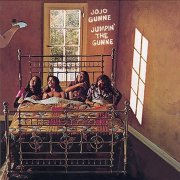 |
Jumpin' the Gunne (1973, 38.46) ***/T½ |
|
| I Wanna Love You To the Island Red Meat Getaway Before You Get Your Breakfast At the Spa Monkey Music Couldn't Love You Better |
High School Drool Neon City Turn the Boy Loose |
|
Current availability:
Mellotron used:
Comprising ex-members of the underrated Spirit, it seems Jo Jo Gunne played a typically American mixture of straightforward rock'n'roll and some more interesting areas, not unlike lesser-known outfits such as Baxter or the wildly obscure Bronin-Hogman Band. Their second album, Jumpin' the Gunne, opens with the straight-ahead I Wanna Love You, before launching head-first into the progressively-inclined To The Island, diverting into a steel drum solo (!) on Getaway, although it has to be said, the bulk of its material is proto-arena rock.
Like many before and after him, Jay Ferguson plays mostly piano and organ on the album, although a Clavinet makes itself audible on one track. His Mellotron crops up on three songs here, with a slightly unorthodox strings part on To The Island, while a few seconds of strings in Before You Get Your Breakfast are completely upstaged by one of those 'how do you play that thing that fast?' moments in At The Spa, although that would appear to be it.
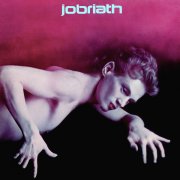 |
Jobriath (1973, 34.50) ***½/½ |
|
| Take Me I'm Yours Be Still World Without End Space Clown Earthling Movie Queen I'maman Inside |
Morning Star Ship Rock of Ages Blown Away |
|
Current availability:
Mellotron used:
Bruce Wayne "Jobriath" Campbell is probably best-remembered these days as the first openly gay artist signed to a major, rather than for the relative failure of his career or his ignominious death from AIDS in his mid-thirties. However, his star has slowly risen over the decades, to the point where his eponymous 1973 debut is now often spoken of in the kind of hushed tones reserved for the deathless classics produced by, say, Dylan or Bowie at their respective peaks. Did someone say Bowie? Funny, that... More than anything else, Jobriath resembles an amalgam of The Dame's finer moments, with a touch of Peter Hammill thrown in for good measure, perhaps surprisingly. I have to say that I'm less keen on the cabaret end of Jobriath's writing (Space Clown, Movie Queen), preferring the more mainstream rock of World Without End and I'maman, although the lumpen rock'n'roll of Rock Of Ages is probably the album's worst track.
Someone (Jobriath himself? Producer Eddie Kramer?) plays Mellotron string and flute parts that could almost be mistaken for real ones on closer Blown Away (thanks, Robert), the occasional clunkiness giving their true origins away. Well, I've finally heard this alleged legend and can cheerfully report that, while it's a decent enough effort, occasionally touched with greatness, it's probably too derivative to really be considered classic. Hardly any Mellotron, either, but I really can't imagine anyone buying this for that reason.